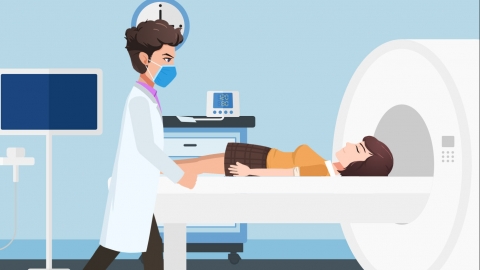Why are some people afraid of undergoing MRI scans?
Common reasons people fear undergoing MRI scans include discomfort caused by the enclosed environment, loud noises during the procedure, difficulty tolerating the lengthy duration, concerns about the safety of metallic implants in the body, and misconceptions about how MRI works. A detailed analysis is as follows:

1. Discomfort due to the confined examination environment: MRI scans require patients to lie inside a closed scanner with limited space for movement. Some individuals may feel oppressed or suffocated upon entering this confined space, especially those with claustrophobia, leading to heightened discomfort and fear.
2. Significant noise during the scan: The machine produces continuous and loud sounds—such as knocking or buzzing—during operation. Although earplugs are provided for protection, some people still find the auditory stimulation difficult to tolerate, which increases anxiety and contributes to fear of the procedure.
3. Long examination duration and difficulty enduring it: A single MRI scan typically lasts 10–30 minutes, during which patients must remain still in a fixed position. Some individuals struggle to endure this due to physical discomfort, pain, or difficulty concentrating, leading to resistance toward undergoing the scan.
4. Concerns about internal metal affecting safety: Patients with metallic implants—such as dental fillings, cardiac stents, or orthopedic fixation plates—may worry that these metals could shift position or generate heat in the magnetic field, potentially causing bodily harm. Even after medical evaluation confirms safety, such concerns may persist and cause fear.
5. Misunderstanding of the scanning principle: Some individuals lack knowledge about how MRI imaging works and mistakenly believe the scan involves radiation exposure that could harm the body. Others may fear abnormal results, leading to excessive anxiety and reluctance to undergo or cooperate with the procedure.
If you are afraid of having an MRI scan, it is advisable to communicate with your doctor beforehand to understand the details and safety aspects of the procedure. Inform your doctor of any special medical conditions in advance to ensure the scan is conducted safely and smoothly.




